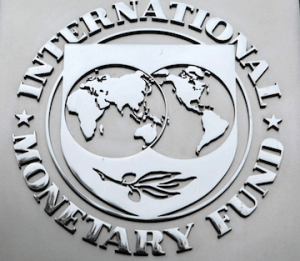The IMF on corruption, Panama Papers and inequality
 The International Monetary Fund (IMF) believes that corruption is one of the most important problems facing the world today and that addressing the phenomenon has become increasingly urgent.
The International Monetary Fund (IMF) believes that corruption is one of the most important problems facing the world today and that addressing the phenomenon has become increasingly urgent.
In a paper by some staff of the IMF titled Corruption: Costs and mitigation strategies; the IMF indicates that the sense of urgency to tackle corruption arises in an environment where growth and employment prospects in many countries remain subdued and a number of high profile corruption cases have fueled moral outrage.
“It also arises because there is a growing consensus that corruption is macro-critical, as it can seriously undermine inclusive economic growth. The urgency is global in nature since corruption is a problem that affects both developed and developing countries,” the paper says.
The paper notes that corruption can undermine the state’s ability to deliver inclusive growth, pointing out that when government functions are impaired, it can adversely affect a number of important determinants of economic performance, including macro financial stability, investment, human capital accumulation, and total factor productivity.
“Moreover, when systemic corruption affects virtually all state functions, distrust of government can become so pervasive that it can lead to violence, civil strife, and conflict, with devastating social and economic implications,” it says.
To address corruption however, the Fund believes that changes are required from many levels. These include transparency, rule of law, and economic reform policies designed to eliminate excessive regulation.
“Perhaps most importantly, however, addressing corruption requires effective institutions. While building institutions is a complex and time consuming exercise that involves a number of intangible elements that may seem beyond the reach of government policy, the objective is clear: the development of a competent civil service that takes pride in being independent of both private influence and public interference,” the paper states.
Noting that major corruption scandals are currently front-page news around the globe, the Fund cited the recent Panama Papers, which its says underscore how opaque corporate vehicles can be used to hide the profits of illicit behavior, including tax evasion, corruption and sanctions evasion.
“At a time of rising inequality in income and wealth, there is moral outrage that the rich and powerful are abusing the system to their own advantage. In several countries, citizens have taken to the streets and are sending a powerful signal to their leaders that they can no longer tolerate corruption,” the paper says.
Citing press reports, the publication indicates that public dissatisfaction with widespread corruption was an important factor that motivated the Arab Spring and the fall of the regime in Ukraine in 2014.
While admitting that, certain advanced economies score worse on perceptions of corruption than some developing countries, it points out that corrupt behaviour leads to suboptimal economic performance wherever they are present.
“During times of global growth, this drag on performance may be less noticeable, especially in high- income countries. But when global growth is constrained, as it is now, this cost of corruption garners more attention,” it says.
On the costs of corruption to countries, the paper indicates that although these costs are hard to measure properly, a sense of the size of the phenomenon can be gauged from bribes paid every year in both developing countries and advanced economies.
“A recent estimate put the annual cost of bribery alone at about $1.5 to $2 trillion (roughly 2 percent of global GDP). The overall economic and social costs of corruption are likely to be even larger, since bribes constitute only one aspect of the possible forms of corruption,” it says.
To tackle corruption effectively, the paper calls for greater transparency and the building of strong institutions that have governance oversight among others.
“Particularly when corruption is acute, leadership—including at the political level—can play a vital role in changing attitudes and behavior. If incoming ministers send a clear no-tolerance signal regarding corruption in their ministries, it can have a real impact,” it says.
By Emmanuel K. Dogbevi
Copyright © 2016 by Creative Imaginations Publicity
All rights reserved. This article or any portion thereof may not be reproduced or used in any manner whatsoever without the express written permission of the publisher except for the use of brief quotations in reviews.
